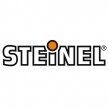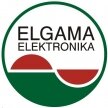-
Product Catalog
- Security and Surveillance Systems
- Automatic Circuit Breakers for Direct Current (DC) Circuits with Integrated Overload, Short-Circuit, and Voltage Stabilization Protection Functions
- Lighting with the help of electrical energy
- Automation and Control Systems
- Sealing profiles | rubber | gaskets | strips
- Inflatable Liquid Storage Tanks | Reservoirs | Bladders
- Inflatable rubber plugs for sealing high-pressure plumbing pipes
- Electrical distribution and installation
- Solar Energy Generation and Management Equipment
- HVAC control solutions for heating and ventilation.
- Special products and accessories
- Other products
- Safety tools
- Quality used products
Gas leak sensors
-
Read more
Gas leak detectors are a critically important part of security systems, ensuring safety in households as well as in industrial or commercial settings. These devices are designed to detect dangerous gas concentrations in the air, which may result from equipment failures or unexpected leaks. Early detection of gas leaks helps prevent serious accidents such as explosions or gas poisoning.
Key features:
Detected gases: Gas detectors can detect various types of gases, such as:Methane (CH4) – commonly used in natural gas networks;
Propane (C3H8) – used in heating and cooking systems;
Butane (C4H10) – used in commercial equipment and outdoors;
Carbon monoxide (CO) – a highly dangerous, colorless, and odorless gas produced by incomplete fuel combustion.
Detection methods: Gas leak detectors can use various detection methods, such as:Chemical detection – sensors react to the chemical composition of gases and send a signal when their concentration exceeds a safe level.
Physical detection – sensors measure physical changes, such as temperature, pressure, or conductivity, that occur during a gas leak.
Protection level: Gas detectors often have built-in alert systems, such as audible or visual signals, that warn of danger. They can also be connected to other security systems, such as ventilation systems or automatic gas shut-off equipment.Installation location: Gas detectors can be installed in various places, depending on the type of gas used:
Ceiling – if lighter-than-air gases, like methane, are used;
Near the floor – if heavier gases, like propane or butane, are used.
Connectivity options: Modern gas leak detectors can have wireless communication modules, allowing data transmission to smartphones or centralized security systems. This enables remote monitoring and receiving alerts wherever you are.Energy efficiency: Many detectors operate with low energy consumption, use batteries, or can be connected to the electrical grid. Some models have features that extend battery life, and some have emergency power supplies.
Applications:
Residential homes: Homeowners must protect their families from potential gas poisoning or explosions.
Industrial facilities: Gas detectors are essential for factories where gases are used as a source of production or heating.
Commercial premises: Hotels, restaurants, offices, and other commercial spaces that use gas for cooking or heating must be equipped with these detectors.
Vehicle garages and repair shops: Garages where flammable gases are used must have gas detectors to prevent leaks and potential explosions.
Key advantages:Early warning: Early leak detection helps avoid catastrophic consequences, such as fires or poisoning.
Safety: These systems increase overall safety in the environment and reduce the risk of accidents.
Convenience: Gas detectors are easy to install and require little maintenance. Additionally, modern models can be wireless, making them easier to use.
Disadvantages:Dependence on power supply: Some gas detectors require a constant power supply, so network failures may pose a risk.
Installation complexity: Although most detectors are easy to install, some situations may require professional assistance.
Certification and safety standards:
Gas leak detectors must comply with strict international standards, such as:CE marking – indicates that the product meets all European Union requirements.
ATEX certification – used for detectors installed in hazardous environments where explosive gases are present.
Summary:
Gas leak detectors are an important investment for protecting people’s health and property from hazards. They can be used in residential, industrial, and commercial settings, providing effective and rapid warning of potential danger.No items found.
US IN SOCIAL NETWORKS
























